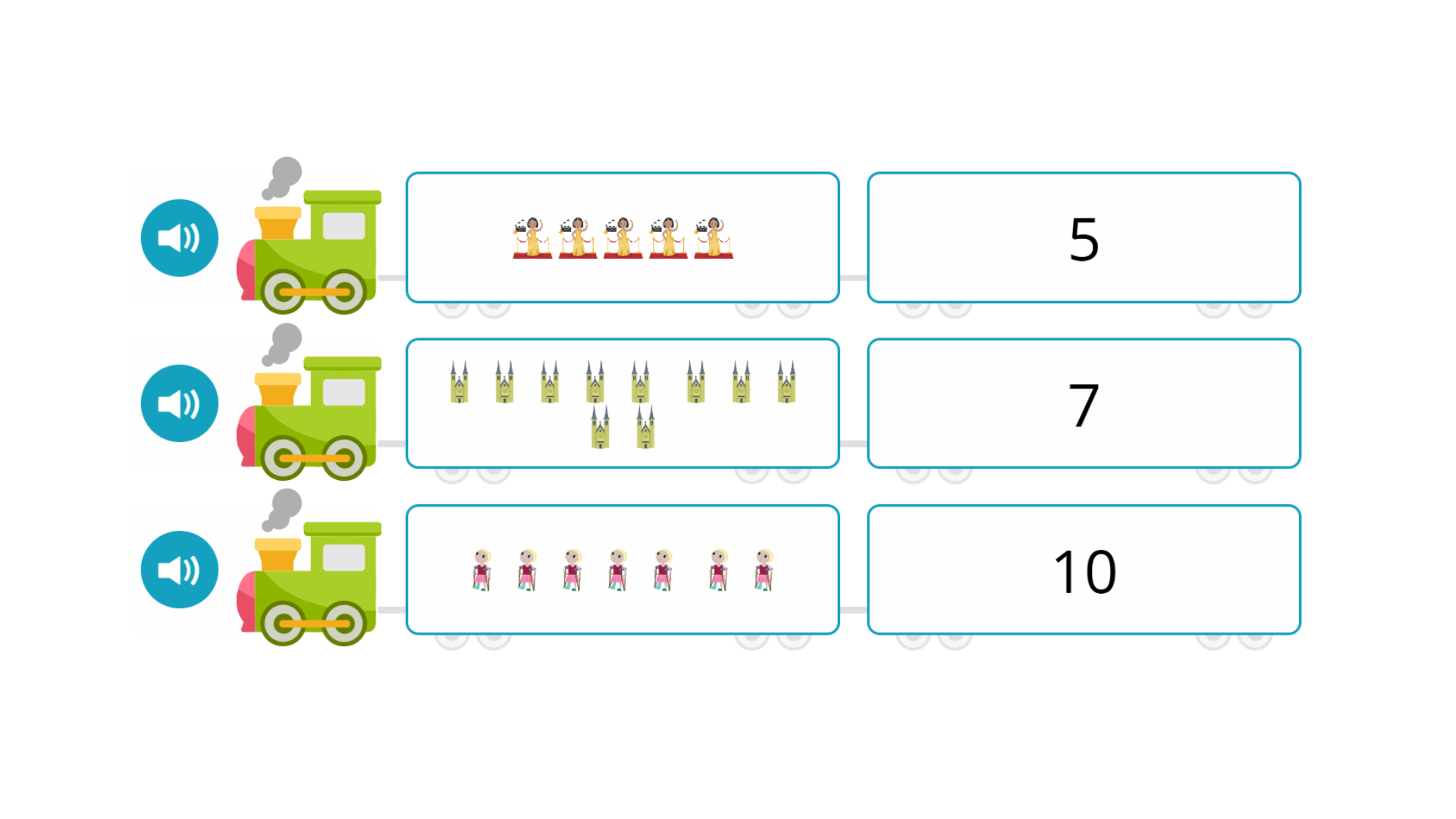Tips on how to use this exercise at home and at school.
Early math concepts
In this exercise, the child matches the number of objects to the number expressed verbally, then the number of fingers or prisms, and finally the number. The aim is for the child to form an idea of numbers in the range 0-10 and to understand the interrelationship between numbers, naming and notation.

Why is this exercise important?
The exercise supports the development of early numerical ideas. The aim is for the child to develop an idea of numbers in the range 0-10 and to understand that the quantity ☻☻☻☻☻☻ can be represented as / / / / /, corresponding to the word "six" and the notation 6, and of course vice versa i.e. the relationship between quantity, its naming and numerical notation.
Who is this exercise suitable for?
In general, it belongs in preschool or early school games. In addition to the concepts of number ideas, and rational assumptions, it also develops language skills at the same time. Part of the children solve the task intuitively and naturally, part of the children need to go through these tasks.
Methodological recommendations
Instructions can be read to the child, played from the app or the child can read them to themself.
In the settings, we can customize the exercise:
The child hears the number first and gradually finds the correct pattern for it. They match the answers by dragging the pictures, symbols, fingers, blocks, sounds and numbers in the right column so that everything matches the pattern in the left column. It depends on the settings you have chosen.
Tips for similar activities outside the app
For this activity, we can use finger countdown in natural situations. For example, physically matching a finger to an object, or prompting the child to remember how many horses were in the paddock, for example. The child has to mentally recall the situation and use the fingers as symbols to express the number.
It is also a great help to play memory games, and quartet and match the number with sounds, counts and so on.